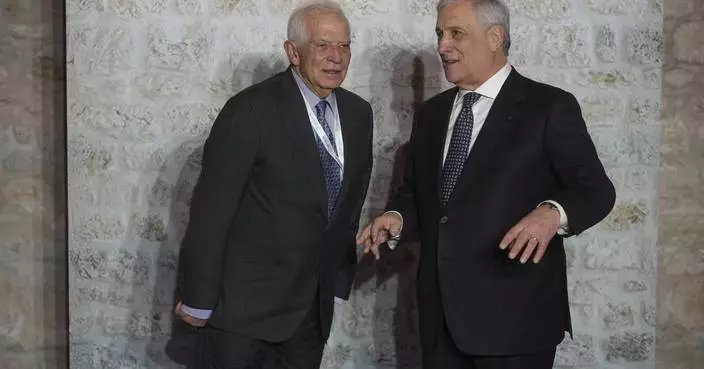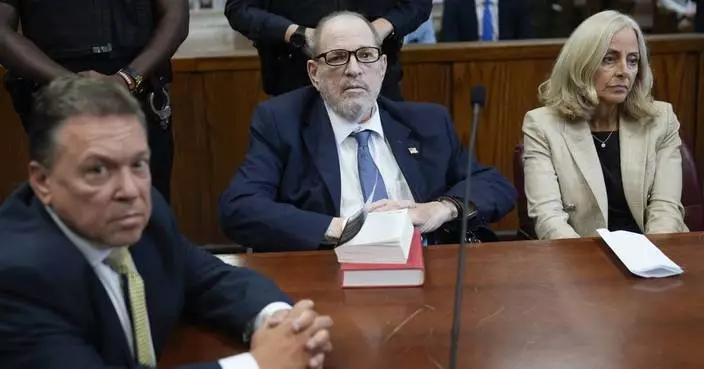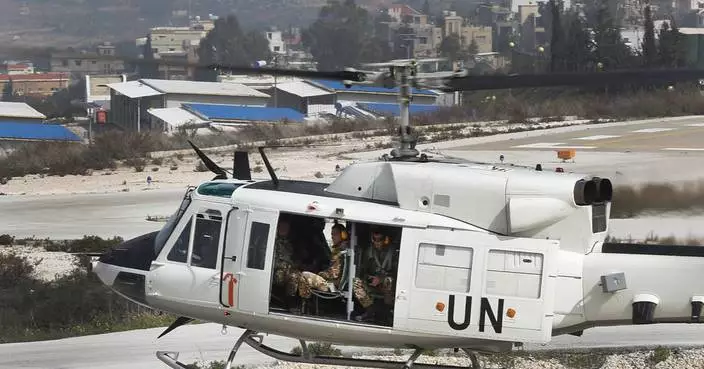SYDNEY, Australia (AP) — A police officer in Australia who shocked a 95-year-old nursing home resident with a Taser was found guilty of her manslaughter on Wednesday.
A jury found Sen Const Kristian James Samuel White guilty in the New South Wales Supreme Court in Sydney after 20 hours of deliberation. Clare Nowland, a great-grandmother who had dementia and used a walker, was refusing to put down the steak knife she was holding when White discharged his Taser at her in May 2023.
Nowland, a resident of Yallambee Lodge, a nursing home in the town of Cooma , fell backwards after White shocked her. She hit her head and died a week later in hospital.
The extraordinary case prompted a high-level internal investigation by state police in New South Wales. It also provoked debate about how officers in the state use Tasers, a device that incapacitates using electricity.
Police said at the time of her death that Nowland received her fatal injuries from striking her head on the floor, rather than directly from the device's debilitating electric shock.
In video footage played during the Supreme Court trial, 34-year-old White was heard saying “nah, bugger it” before discharging his weapon, after the officers told Nowland 21 times to put the knife down. White told the jury he had been taught that any person wielding a knife was dangerous, the Guardian reported.
But after an eight-day trial, the jury rejected arguments by White's lawyers that his use of the Taser was a proportionate response to the threat posed by Nowland, who weighed about 100 pounds.
The prosecutor argued that White's use of the Taser was was “utterly unnecessary and obviously excessive," local news outlets said.
The charge of manslaughter carries a possible prison term of up to 25 years in jail in New South Wales. White is on bail.
Nowland was survived by eight children, 24 grandchildren and 31 great-grandchildren, the Australia's ABC reported.

Senior Constable Kristian White arrives at the New South Wales Supreme Court, in Sydney, Tuesday, Nov. 26, 2024. (Dan Himbrechts/AAP Image via AP)
JERUSALEM (AP) — The ceasefire between Israel and Lebanon’s Hezbollah militants began early Wednesday as a region on edge wondered whether it will hold.
The ceasefire announced Tuesday is a major step toward ending nearly 14 months of fighting sparked by the ongoing war in Gaza between Israel and Hamas.
There were no immediate reports of alleged violations of the truce, and there were signs of celebration in Beirut. But Israel has said it will attack if Hezbollah breaks the agreement.
The ceasefire calls for an initial two-month halt to fighting and requires Hezbollah to end its armed presence in southern Lebanon, while Israeli troops are to return to their side of the border. Thousands of additional Lebanese troopsand U.N. peacekeepers would deploy in the south, and an international panel headed by the United States would monitor compliance.
An Israeli military spokesman, in an Arabic-language X post in the first half-hour of the ceasefire, warned evacuated residents of southern Lebanon to not head home yet, saying the military remained deployed there.
The ceasefire began at 4 a.m. Wednesday, a day after Israel carried out its most intense wave of airstrikes in Beirut since the start of the conflict that in recent weeks turned into all-out war. At least 42 people were killed in strikes across the country, according to local authorities.
The ceasefire does not address the devastating war in Gaza, where Hamas is still holding dozens of hostages and the conflict is more intractable.
There appeared to be lingering disagreement over whether Israel would have the right to strike Hezbollah if it believed the militants had violated the agreement, something Prime Minister Benjamin Netanyahu insisted was part of the deal but which Lebanese and Hezbollah officials have rejected.
Israel's security Cabinet approved the U.S.-France-brokered ceasefire agreement after Netanyahu presented it, his office said. U.S. President Joe Biden, speaking in Washington, called the agreement “good news” and said his administration would make a renewed push for a ceasefire in Gaza.
The Biden administration spent much of this year trying to broker a ceasefire and hostage release in Gaza but the talks repeatedly sputtered to a halt. President-elect Donald Trump has vowed to bring peace to the Middle East without saying how.
Still, any halt to the fighting in Lebanon is expected to reduce the likelihood of war between Israel and Iran, which backs both Hezbollah and Hamas and exchanged direct fire with Israel on two occasions earlier this year.
Netanyahu presented the ceasefire proposal to Cabinet ministers after a televised address in which he listed accomplishments against Israel’s enemies across the region. He said a ceasefire with Hezbollah would further isolate Hamas in Gaza and allow Israel to focus on its main enemy, Iran.
“If Hezbollah breaks the agreement and tries to rearm, we will attack,” he said. “For every violation, we will attack with might.”
Biden said Israel reserved the right to quickly resume operations in Lebanon if Hezbollah breaks the terms of the truce, but that the deal "was designed to be a permanent cessation of hostilities.”
Netanyahu’s office said Israel appreciated the U.S. efforts in securing the deal but “reserves the right to act against every threat to its security.”
Lebanon’s caretaker Prime Minister Najib Mikati welcomed the ceasefire and described it as a crucial step toward stability and the return of displaced people.
Hezbollah has said it accepts the proposal, but a senior official with the group said Tuesday it had not seen the agreement in its final form.
“After reviewing the agreement signed by the enemy government, we will see if there is a match between what we stated and what was agreed upon by the Lebanese officials,” Mahmoud Qamati, deputy chair of Hezbollah’s political council, told the Al Jazeera news network.
“We want an end to the aggression, of course, but not at the expense of the sovereignty of the state," he said, referring to Israel's demand for freedom of action. “Any violation of sovereignty is refused.”
Even as ceasefire efforts gained momentum in recent days, Israel continued to strike what it called Hezbollah targets across Lebanon while the militants fired rockets, missiles and drones across the border.
An Israeli strike on Tuesday leveled a residential building in central Beirut — the second time in recent days warplanes have hit the crowded area near downtown. At least seven people were killed and 37 wounded, according to Lebanon's Health Ministry.
Israel also struck a building in Beirut's bustling commercial district of Hamra for the first time, hitting a site around 400 meters (yards) from Lebanon’s Central Bank. There were no reports of casualties.
The Israeli military said it struck targets linked to Hezbollah's financial arm.
The evacuation warnings covered many areas, including parts of Beirut that previously were not targeted. Residents fled. Traffic was gridlocked, with mattresses tied to some cars. Dozens of people, some wearing pajamas, gathered in a central square, huddling under blankets or standing around fires as Israeli drones buzzed overhead.
Israeli military spokesman Avichay Adraee issued evacuation warnings for 20 buildings in Beirut's southern suburbs, where Hezbollah has a major presence, as well as a warning for the southern town of Naqoura where the U.N. peacekeeping mission, UNIFIL, is headquartered.
UNIFIL spokesperson Andrea Tenenti said peacekeepers will not evacuate.
The Israeli military also said its ground troops clashed with Hezbollah forces and destroyed rocket launchers in the Slouqi area on the eastern end of the Litani River, a few kilometers (miles) from the Israeli border.
Under the ceasefire deal, Hezbollah is required to move its forces north of the Litani, which in some places is about 30 kilometers (20 miles) north of the border.
Hezbollah began firing into northern Israel on Oct. 8, 2023, saying it was showing support for the Palestinians, a day after Hamas carried out its attack on southern Israel, triggering the Gaza war. Israel returned fire on Hezbollah, and the two sides have exchanged barrages ever since.
Israel escalated its bombardment in mid-September and later sent troops into Lebanon, vowing to put an end to Hezbollah fire so tens of thousands of evacuated Israelis could return to their homes.
More than 3,760 people have been killed by Israeli fire in Lebanon the past 13 months, many of them civilians, according to Lebanese health officials. The bombardment has driven 1.2 million people from their homes. Israel says it has killed more than 2,000 Hezbollah members.
Hezbollah fire has forced some 50,000 Israelis to evacuate in the country’s north, and its rockets have reached as far south in Israel as Tel Aviv. At least 75 people have been killed, more than half of them civilians. More than 50 Israeli soldiers have died in the ground offensive in Lebanon.
Chehayeb and Mroue reported from Beirut and Federman from Jerusalem. Associated Press reporters Lujain Jo and Sally Abou AlJoud in Beirut and Aamer Madhani in Washington contributed.
Find more of AP’s war coverage at https://apnews.com/hub/israel-hamas-war
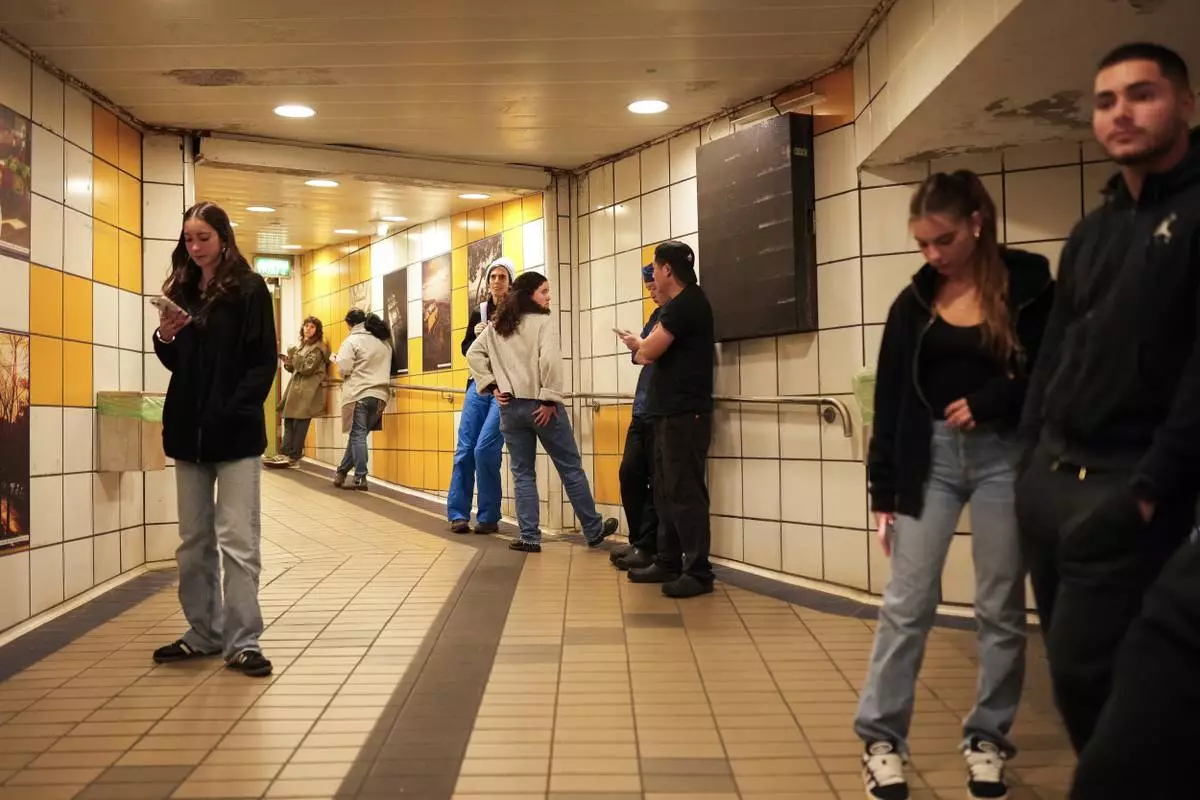
People take shelter in a metro station as a siren sounds a warning of incoming rockets from Lebanon in Haifa, Tuesday, Nov. 26, 2024. (AP Photo/Francisco Seco)
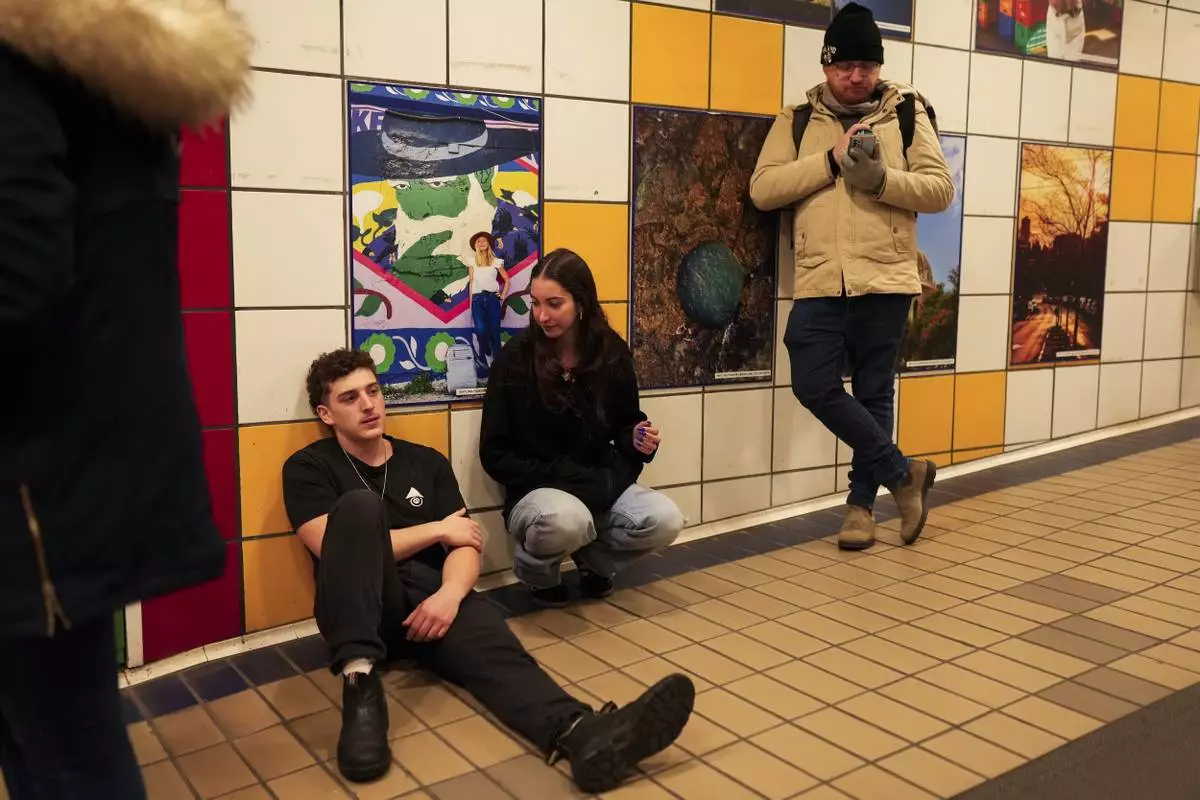
People take shelter in a metro station as a siren sounds a warning of incoming rockets from Lebanon in Haifa, Tuesday, Nov. 26, 2024. (AP Photo/Francisco Seco)
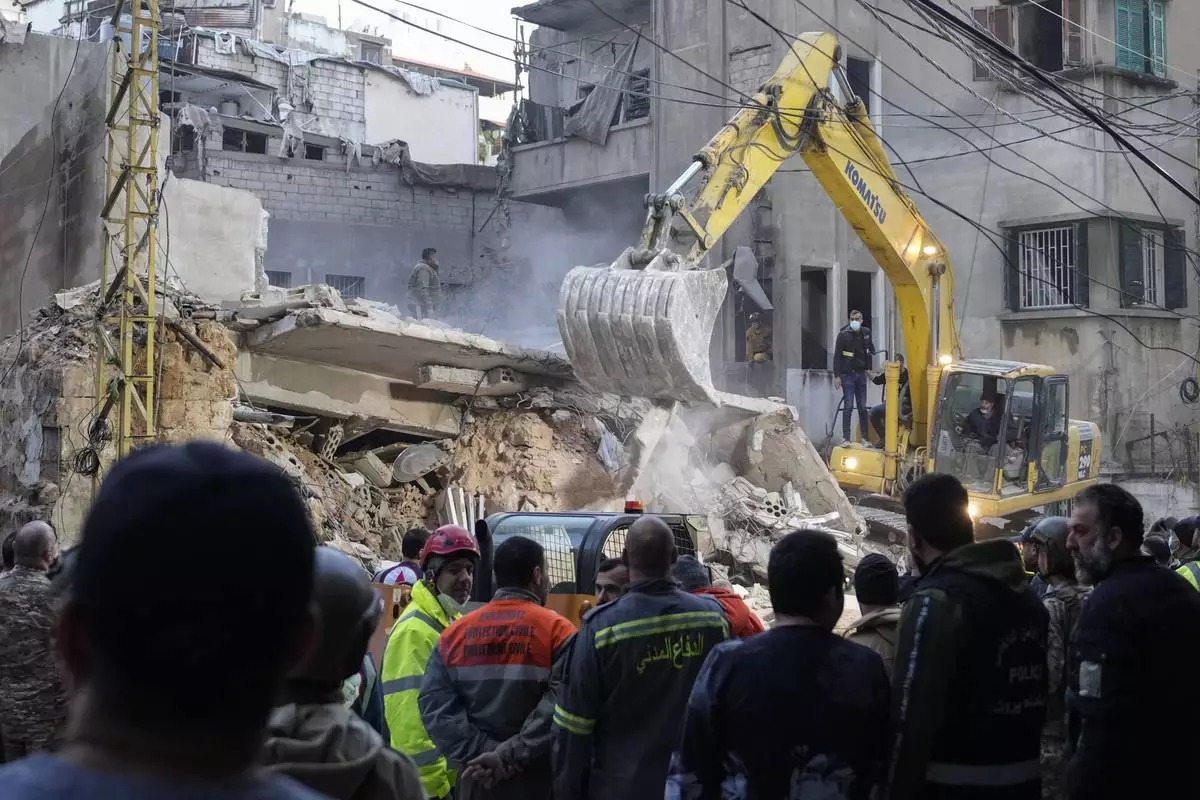
Rescuers use an excavator as they search for victims at the site of an Israeli airstrike that hit a building in Beirut, Tuesday, Nov. 26, 2024. (AP Photo/Hassan Ammar)
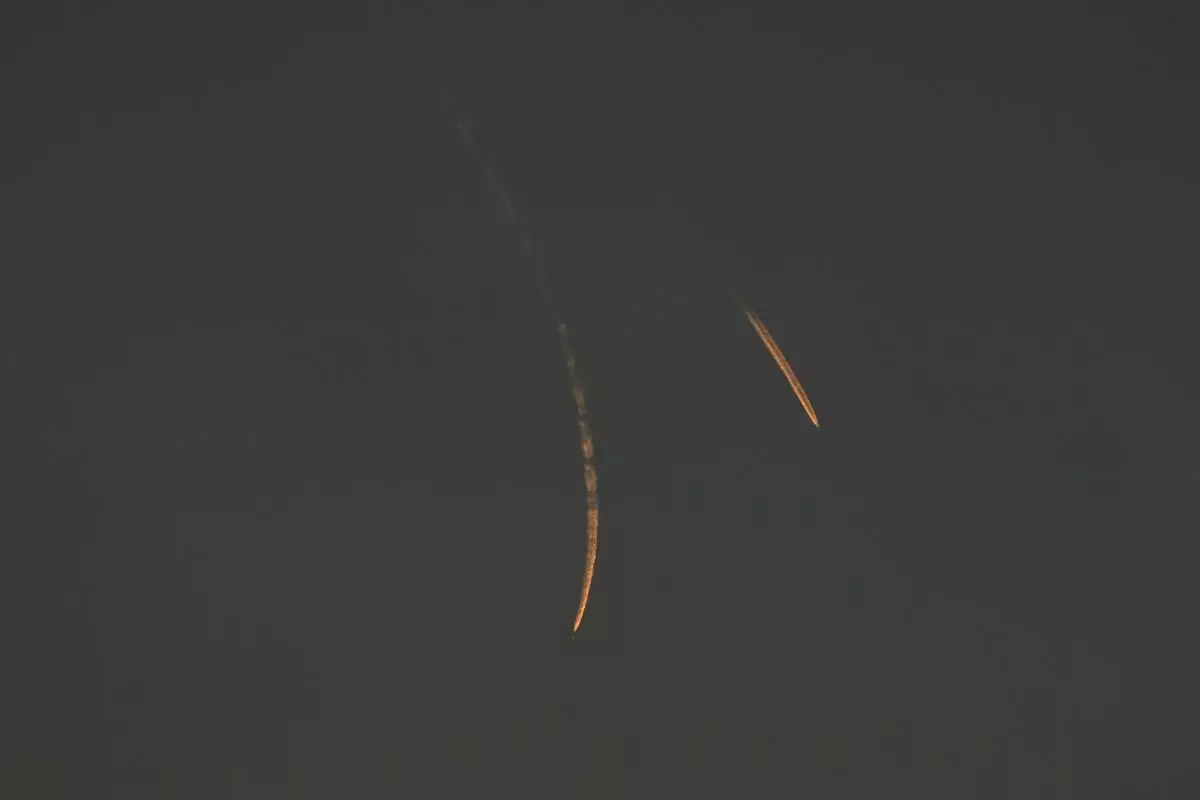
Israeli warplanes fly over Dahiyeh, in Beirut, Lebanon, Tuesday, Nov. 26, 2024. (AP Photo/Bilal Hussein)
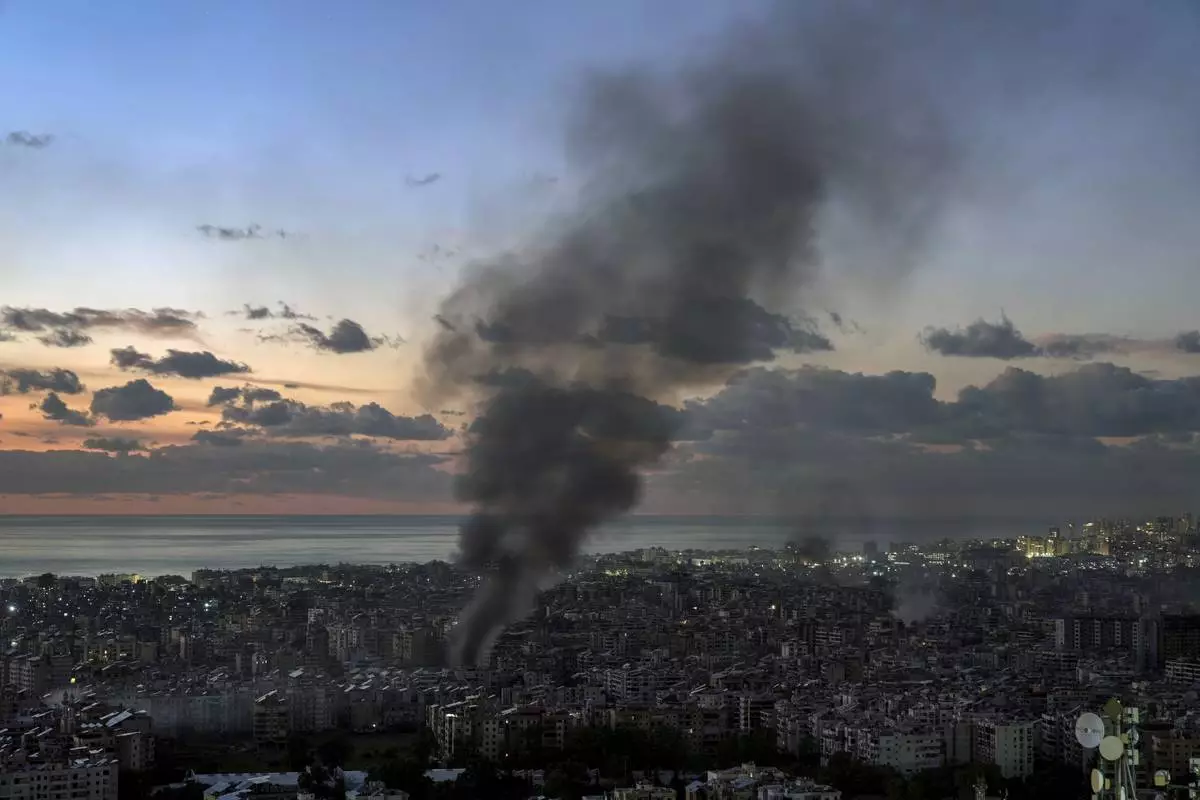
Smoke rises following an Israeli airstrike on Dahiyeh, in Beirut, Lebanon, Tuesday, Nov. 26, 2024. (AP Photo/Bilal Hussein)
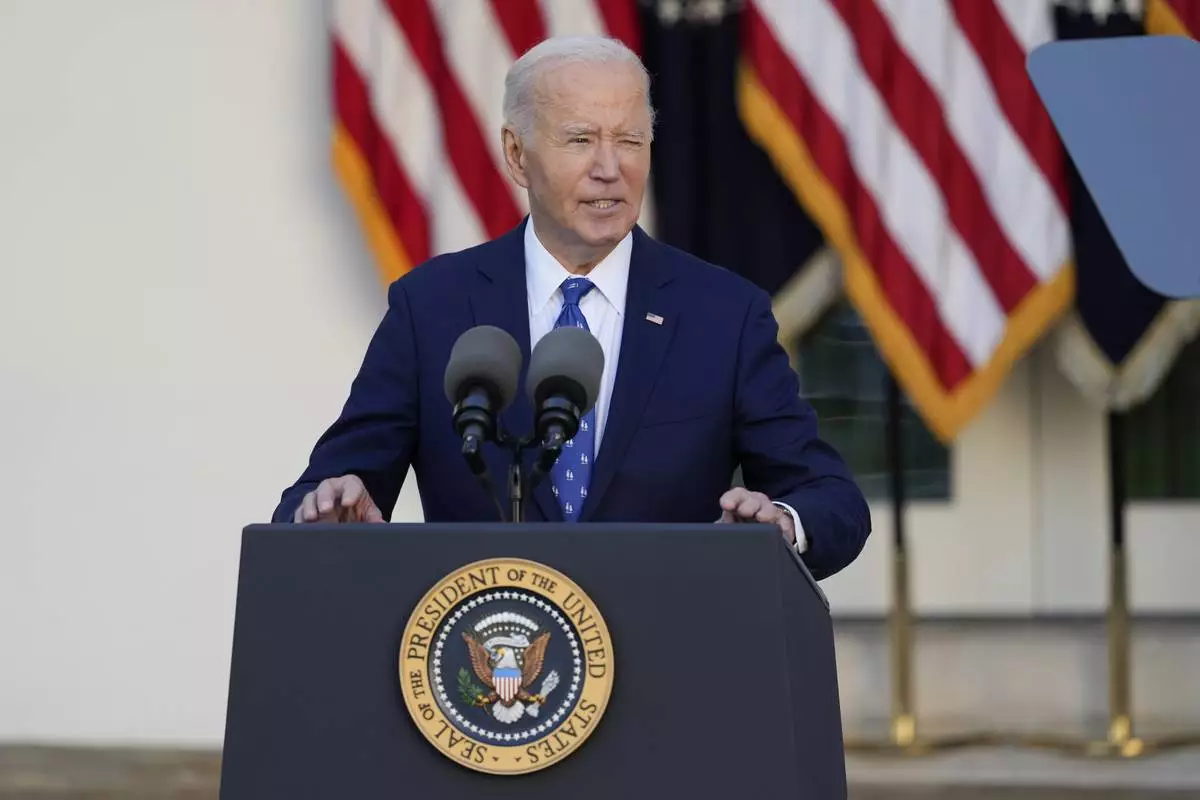
President Joe Biden speaks in the Rose Garden of the White House in Washington Tuesday, Nov. 26, 2024. (AP Photo/Ben Curtis)
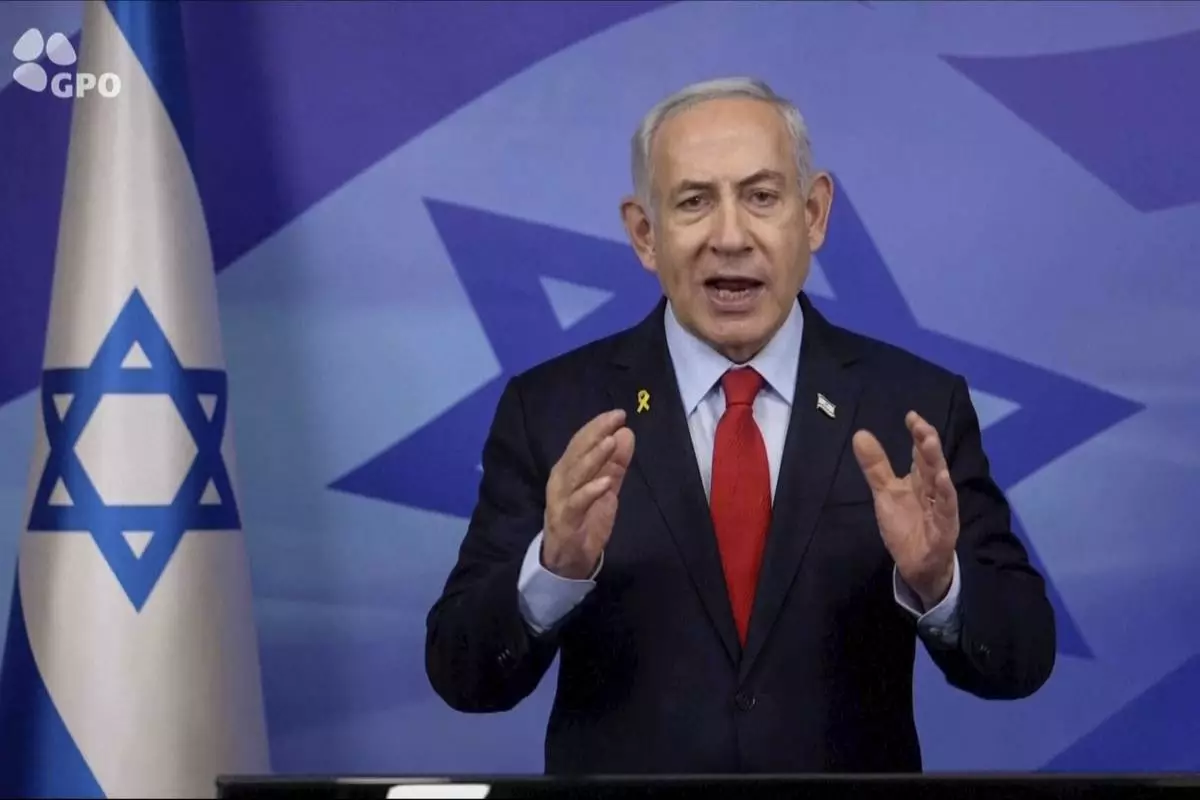
In this screen grab image from video provide by the Israeli Government Press Office, Israeli Prime Minister Benjamin Netanyahu makes a televised statement Tuesday, Nov. 26, 2024, in Jerusalem, Israel. (Israeli Government Press Office via AP)
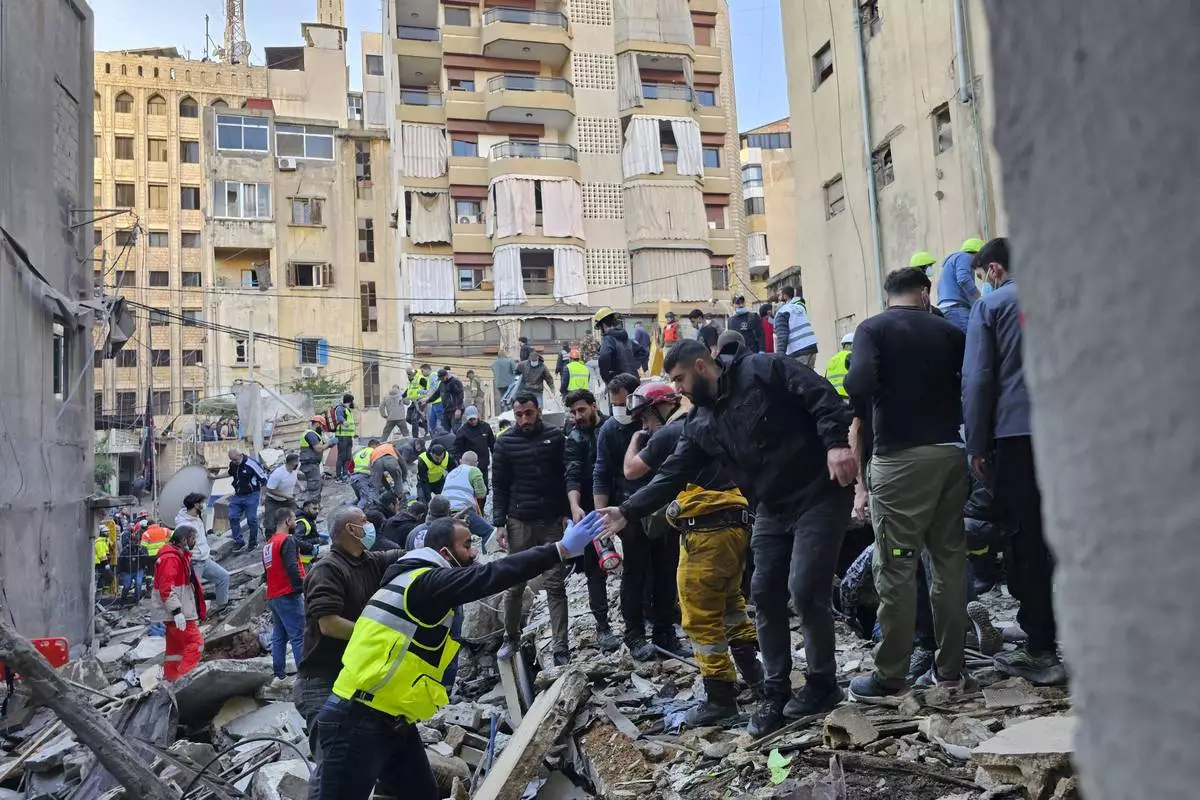
Rescuers search for victims at the site of an Israeli airstrike that targeted a building in Beirut, Lebanon, Tuesday, Nov. 26, 2024. (AP Photo/Hassan Ammar)
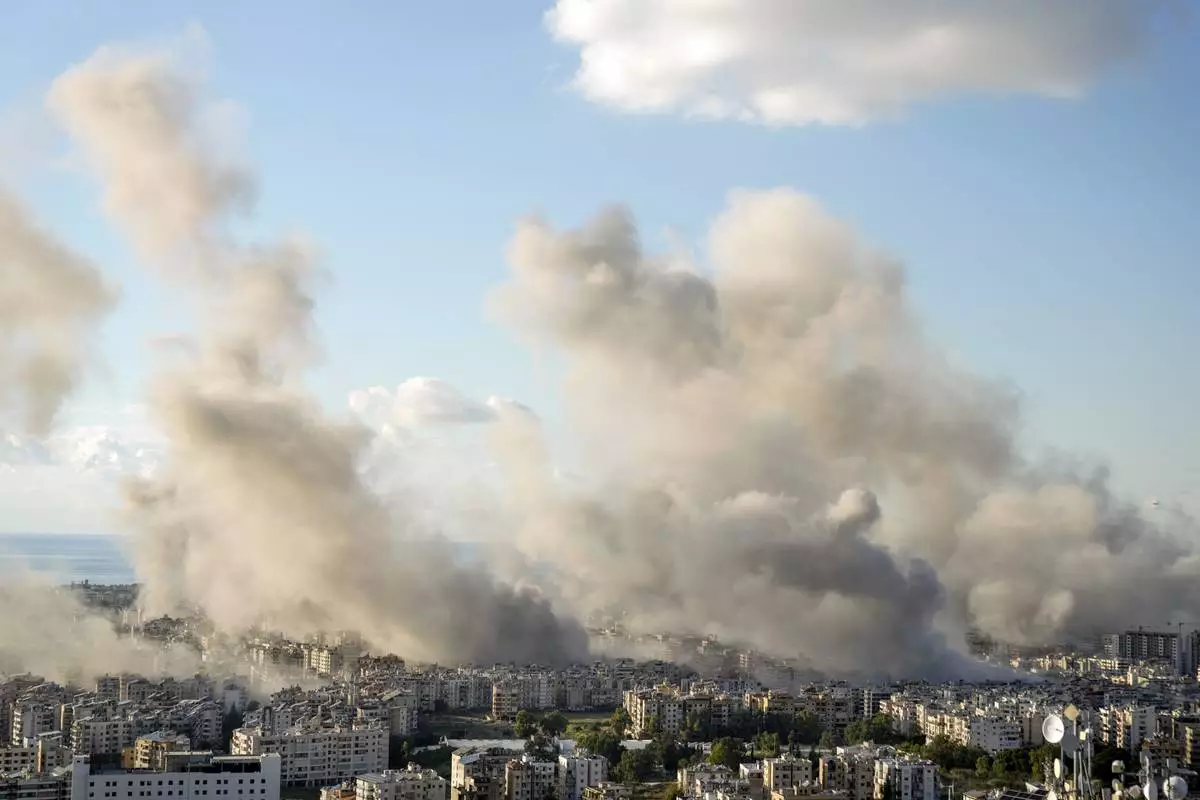
Smoke rises following an Israeli airstrike on Dahiyeh, in Beirut, Lebanon, Tuesday, Nov. 26, 2024. (AP Photo/Bilal Hussein)
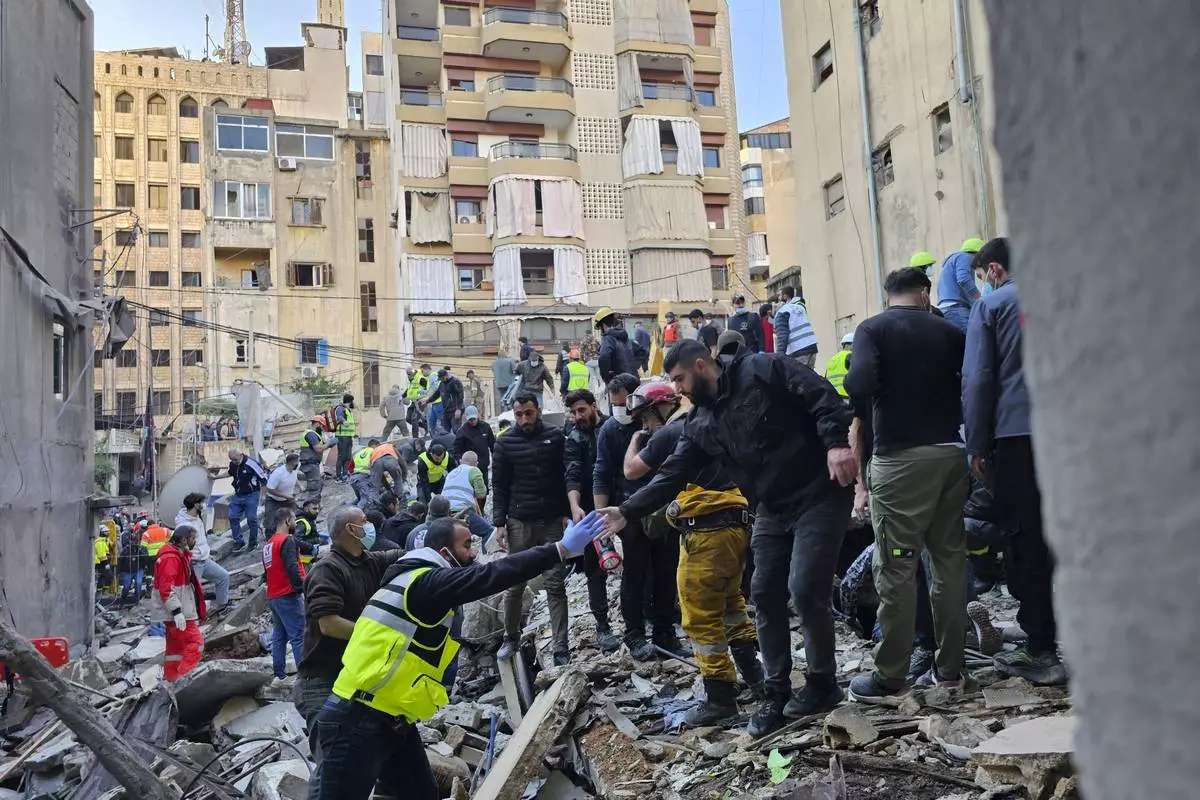
Rescuers search for victims at the site of an Israeli airstrike that targeted a building in Beirut, Lebanon, Tuesday, Nov. 26, 2024. (AP Photo/Hassan Ammar)
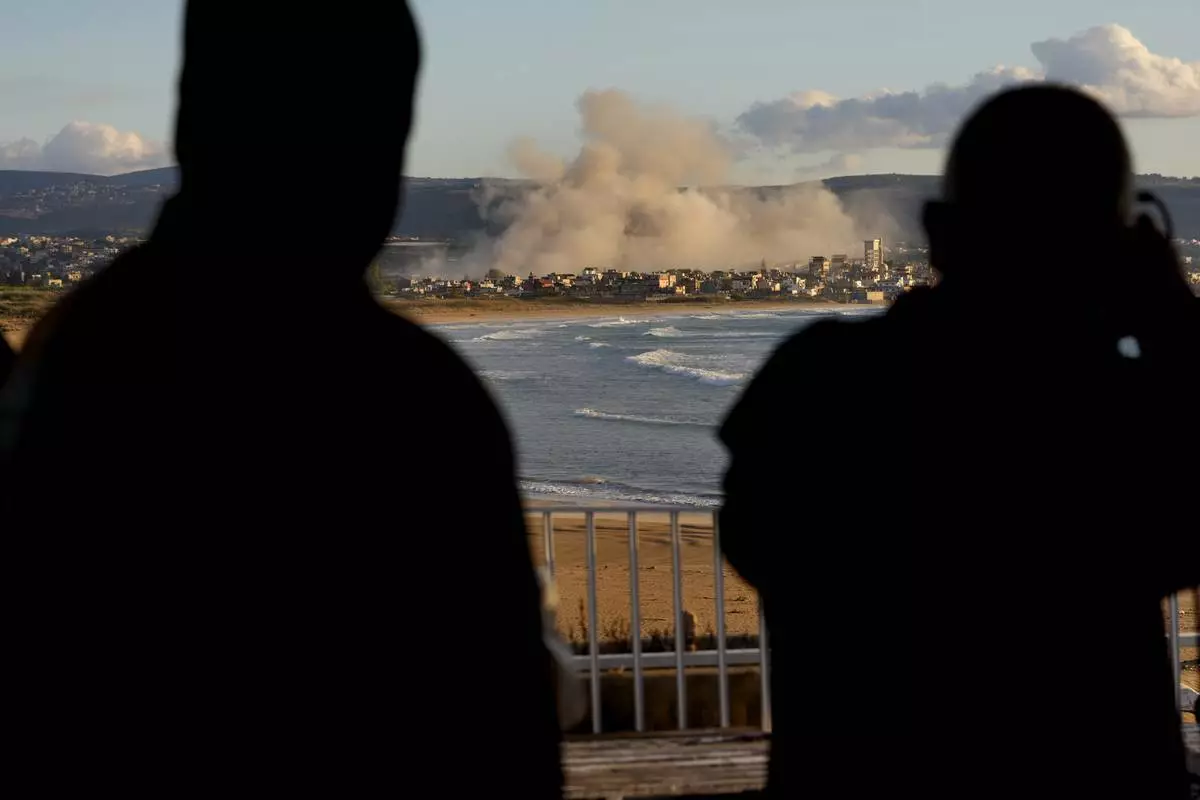
Journalists watch the smoke rising between buildings hit in Israeli airstrikes near the Palestinian refugee camp of Rashidiyeh, as it seen from Tyre city, south Lebanon, Tuesday, Nov. 26, 2024. (AP Photo/Hussein Malla)
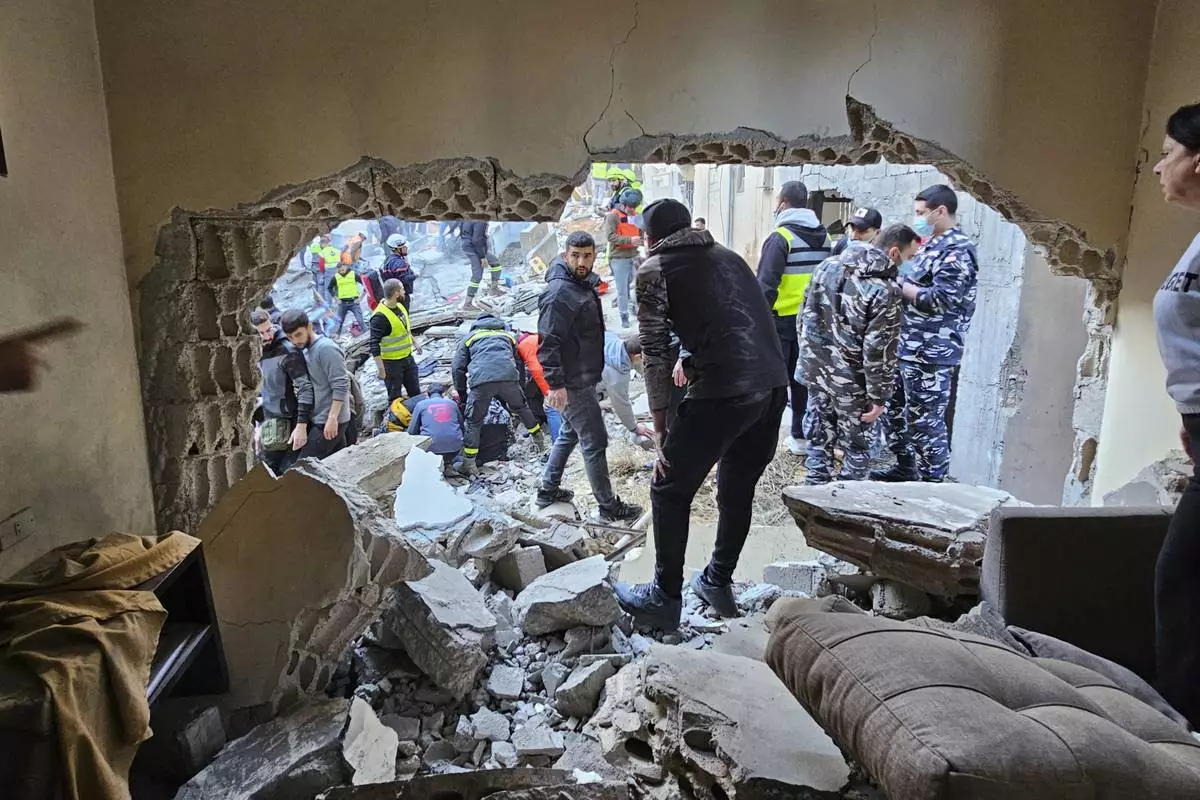
Rescuers and residents search for victims at the site of an Israeli airstrike that targeted a building in Beirut, Lebanon, Tuesday, Nov. 26, 2024. (AP Photo/Hassan Ammar)
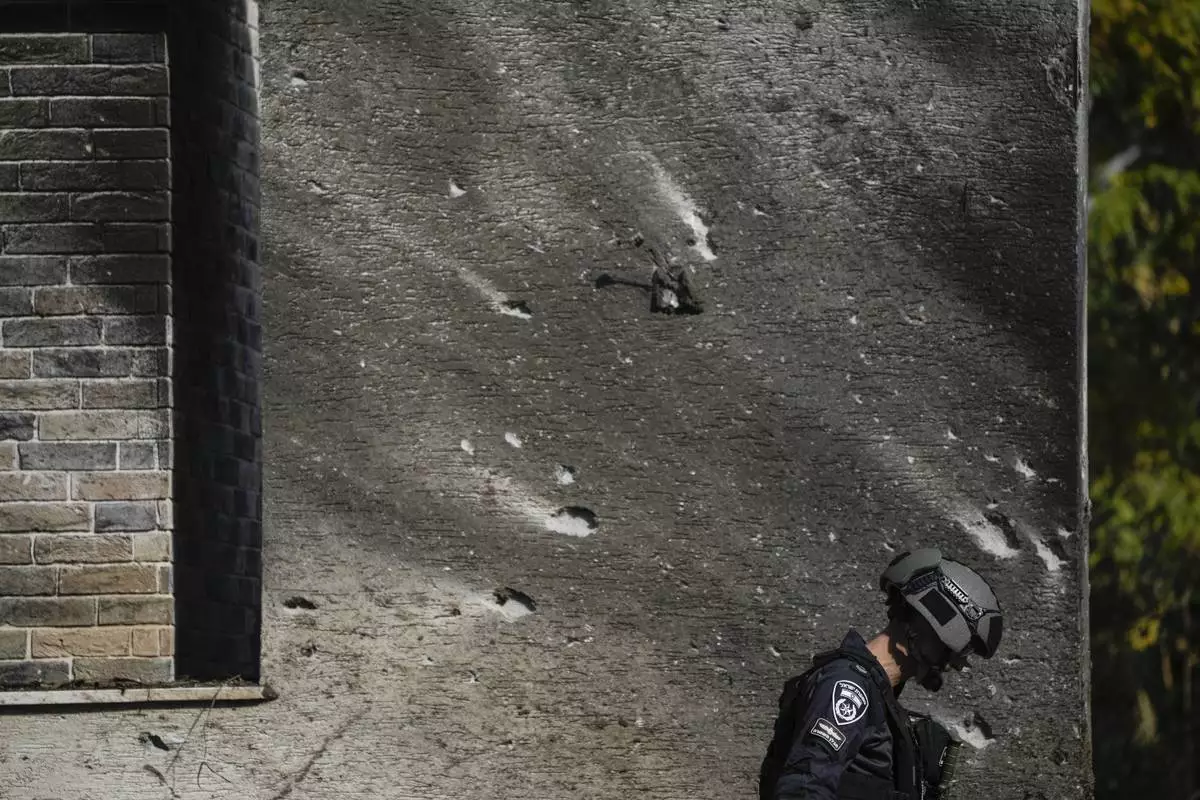
A police bomb squad officer inspects the site where a rocket fired from Lebanon landed in a backyard in Kiryat Shmona, northern Israel, Tuesday Nov. 26, 2024. (AP Photo/Leo Correa)
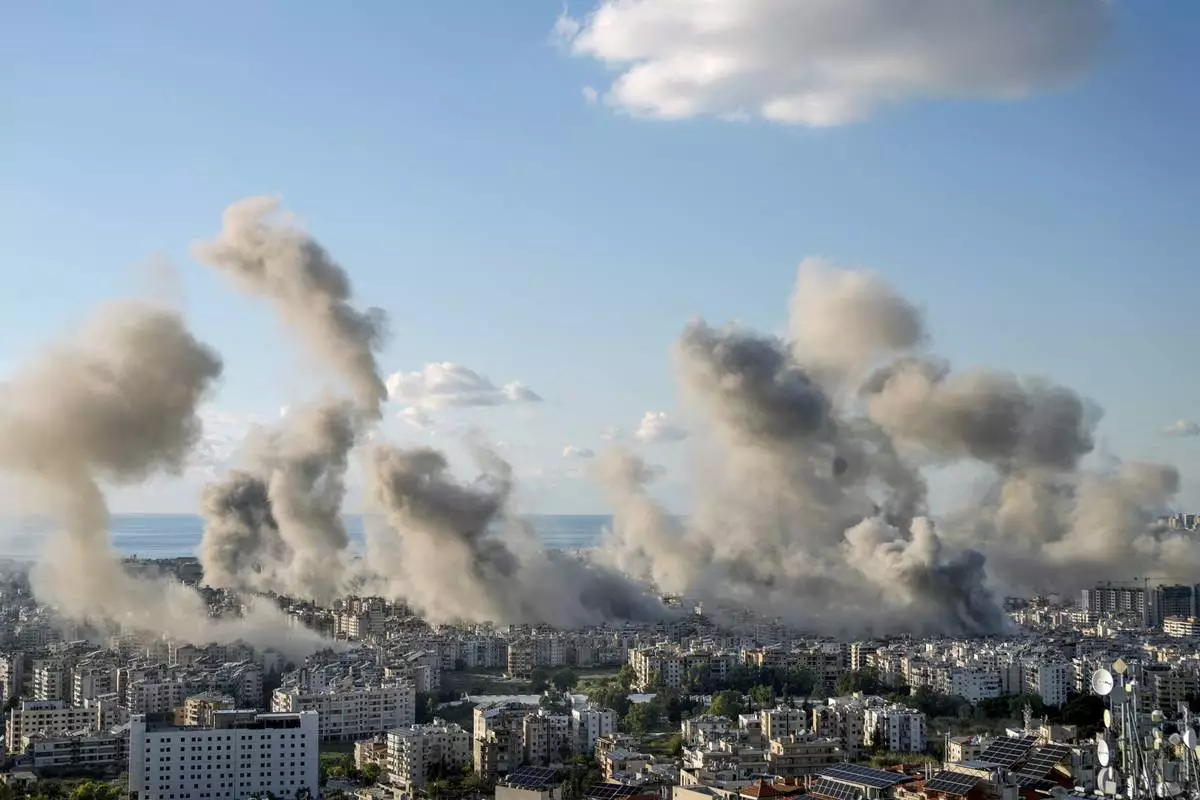
Smoke rises following an Israeli airstrike on Dahiyeh, in Beirut, Lebanon, Tuesday, Nov. 26, 2024. (AP Photo/Bilal Hussein)
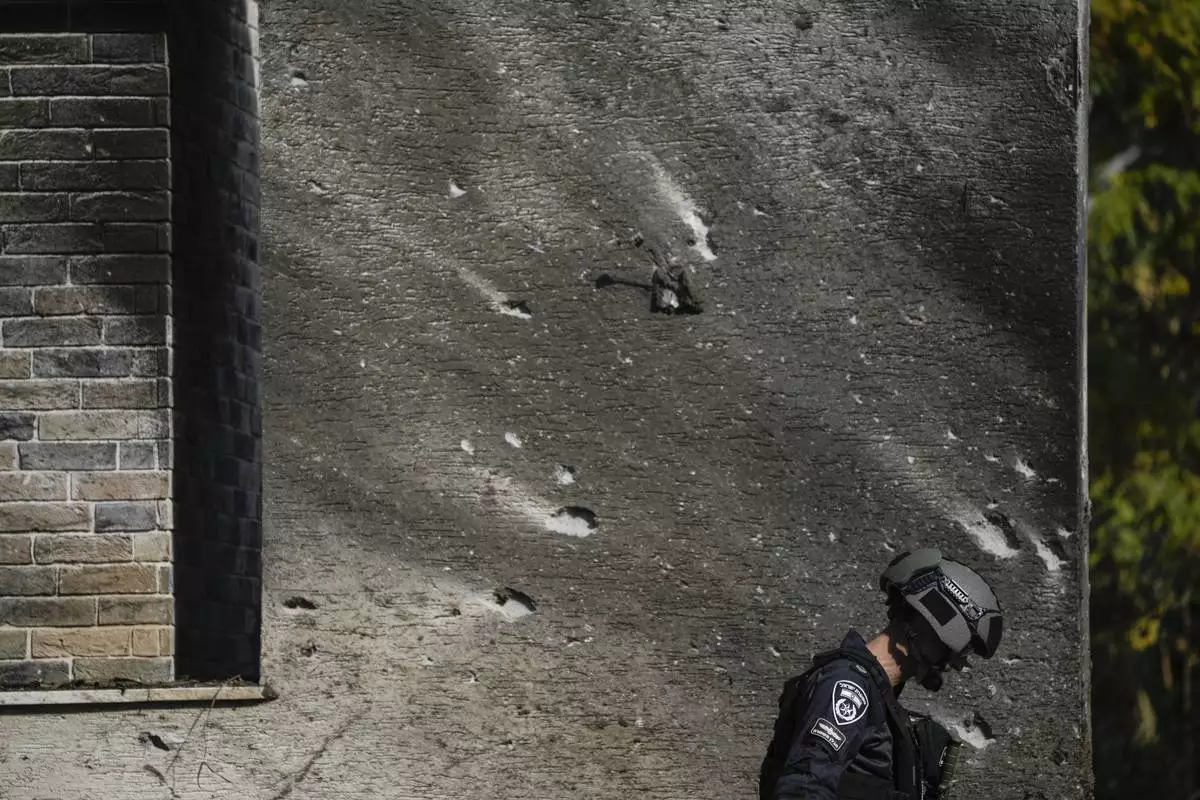
A police bomb squad officer inspects the site where a rocket fired from Lebanon landed in a backyard in Kiryat Shmona, northern Israel, Tuesday Nov. 26, 2024. (AP Photo/Leo Correa)
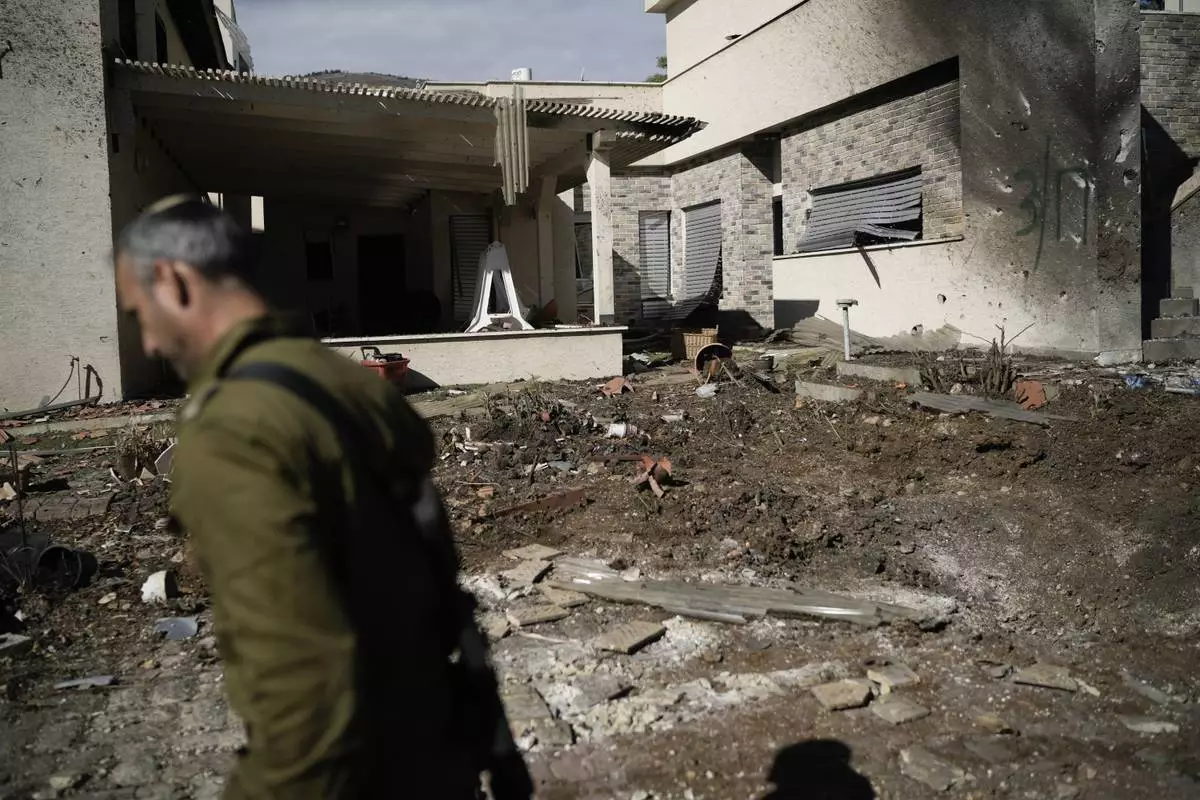
An Israeli soldier inspects the site where a rocket fired from Lebanon landed in a backyard in Kiryat Shmona, northern Israel, Tuesday Nov. 26, 2024. (AP Photo/Leo Correa)
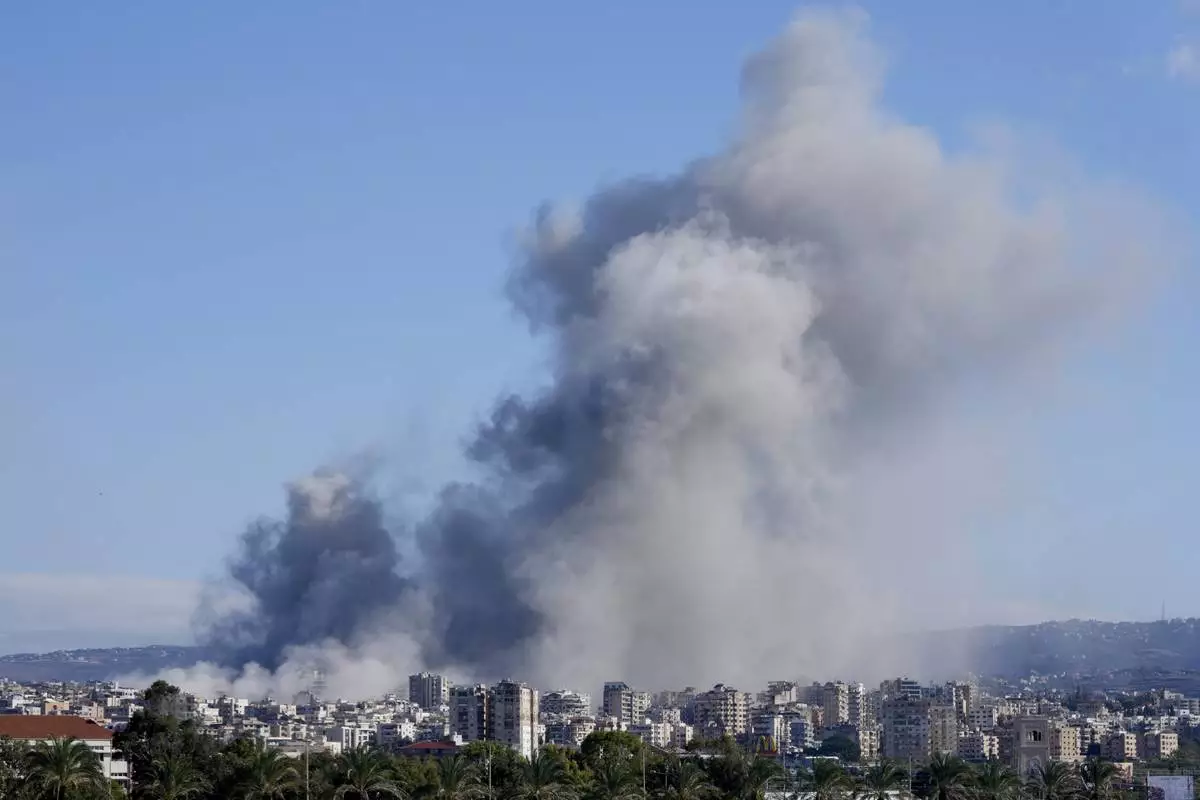
Smoke rises between buildings hit in Israeli airstrikes in Hosh neighbourhood, in Tyre, south Lebanon, Tuesday, Nov. 26, 2024. (AP Photo/Hussein Malla)
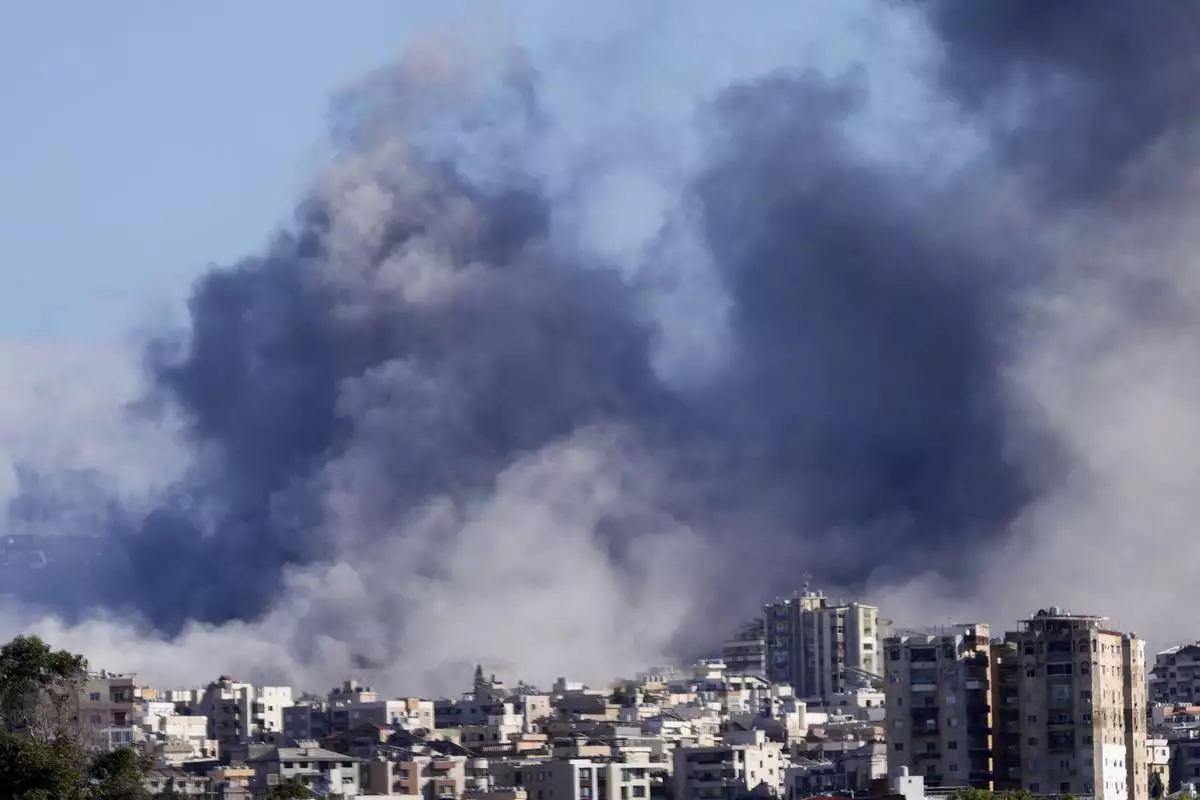
Smoke rises between buildings hit in Israeli airstrikes in Hosh neighbourhood, in Tyre, south Lebanon, Tuesday, Nov. 26, 2024. (AP Photo/Hussein Malla)
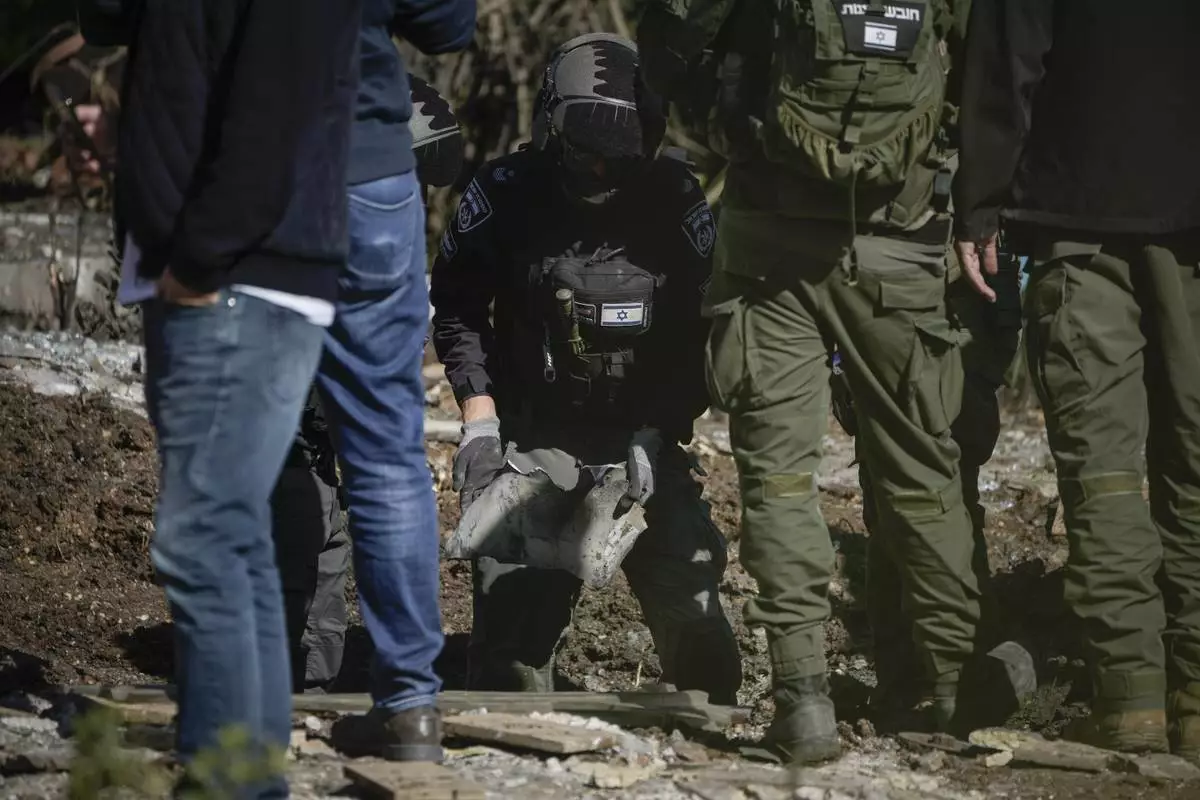
Police bomb squad officers collect the pieces of a rocket fired from Lebanon that landed in a backyard in Kiryat Shmona, northern Israel, Tuesday Nov. 26, 2024. (AP Photo/Leo Correa)
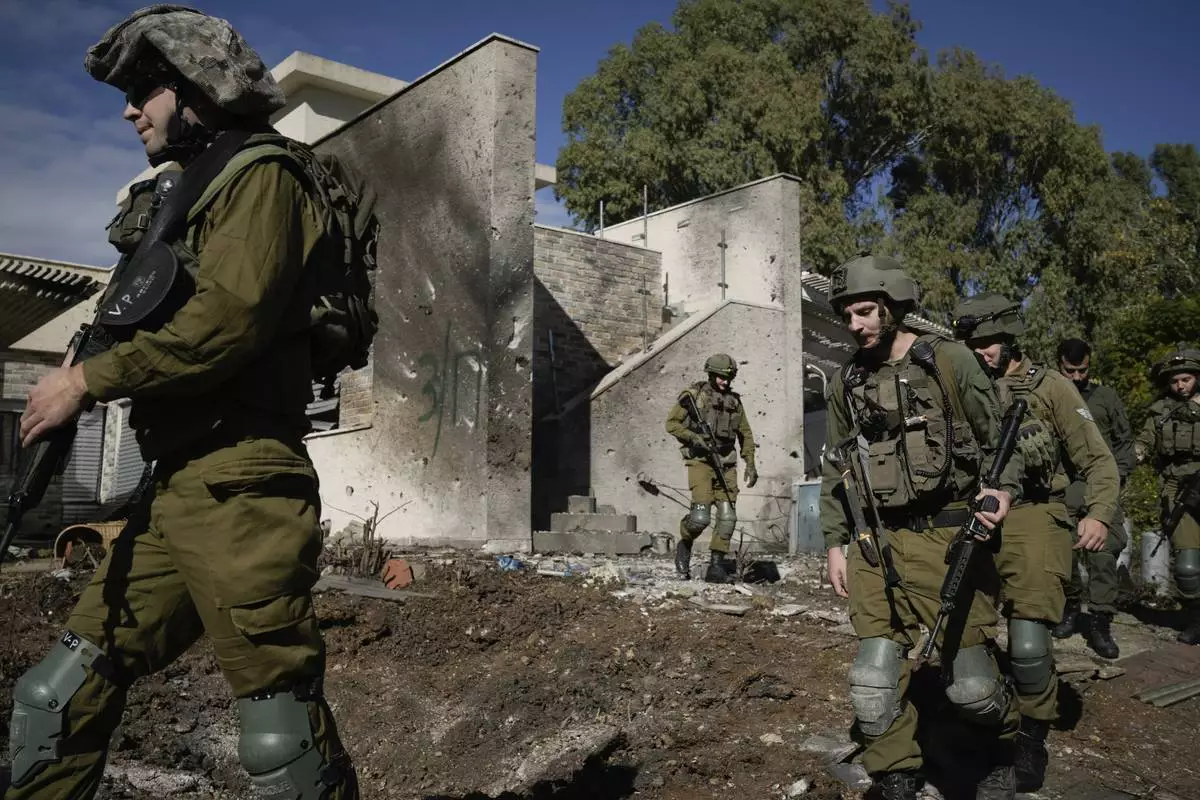
Israeli soldiers inspect the site where a rocket fired from Lebanon landed in a backyard in Kiryat Shmona, northern Israel, Tuesday Nov. 26, 2024. (AP Photo/Leo Correa)
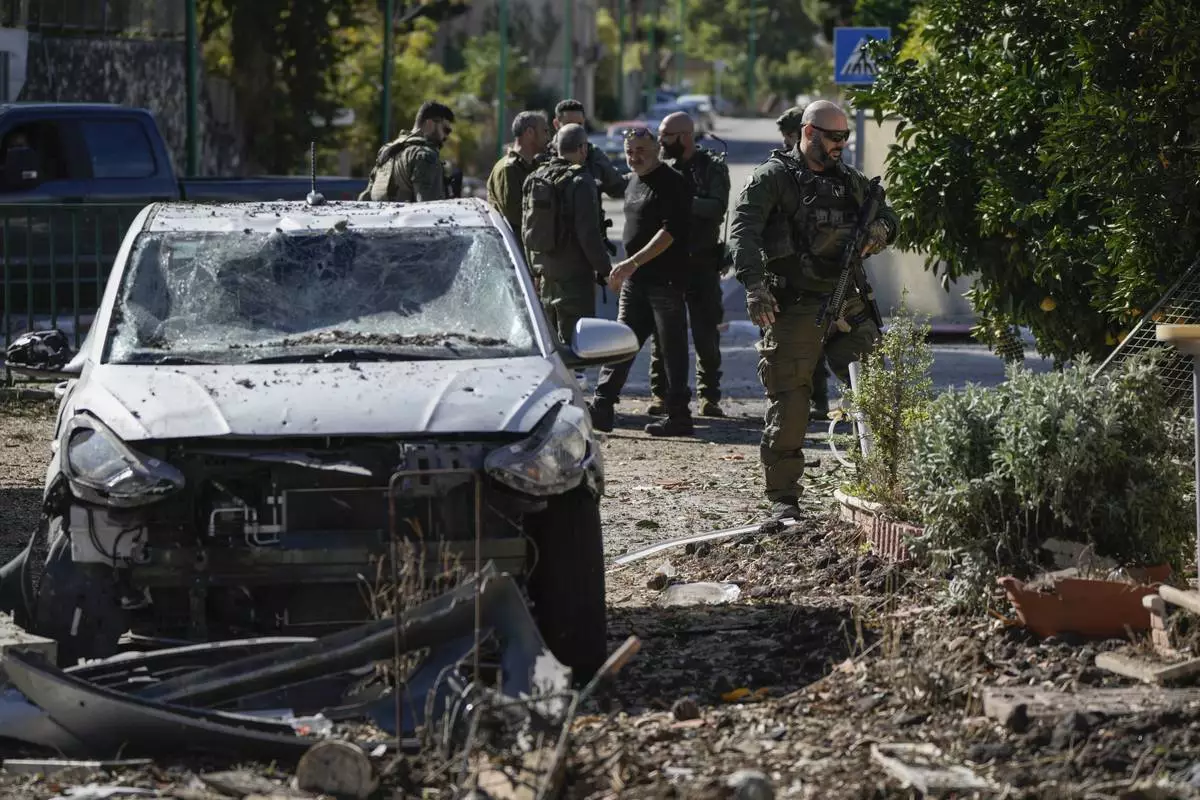
Israeli security officers and army soldiers inspect the site where a rocket fired from Lebanon landed in a backyard in Kiryat Shmona, northern Israel, Tuesday Nov. 26, 2024. (AP Photo/Leo Correa)

























